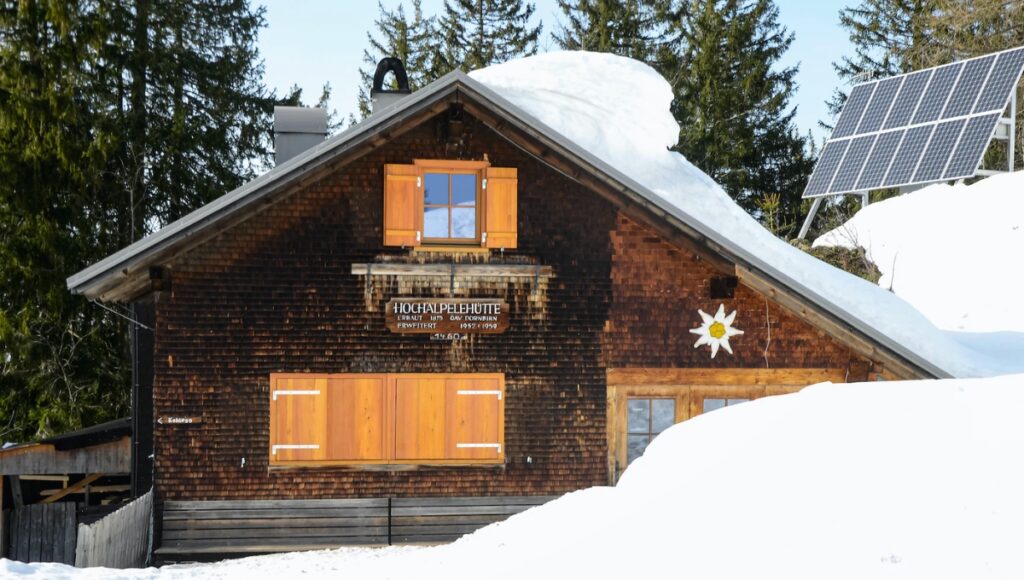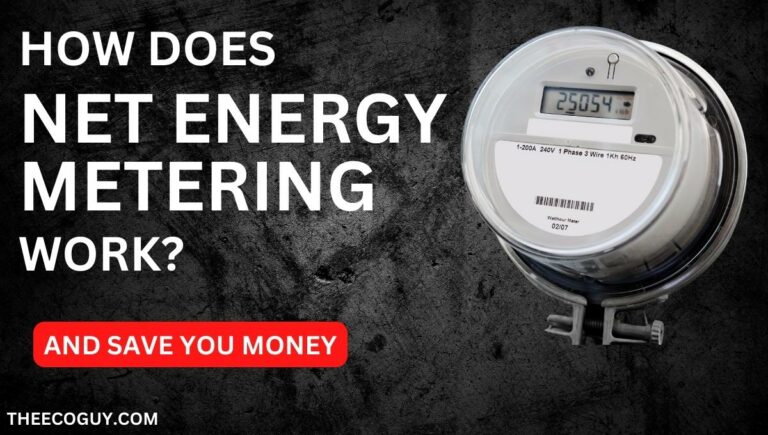Do Solar Panels Make Your House Colder? (Stay Warm!)

Do you wonder if solar panels make your house colder?
The short answer is no, they do not make your house colder. In fact, solar panels can actually help to insulate a home by providing shade during the hot summer months and blocking cold winter winds. Additionally, the electricity generated by solar panels helps to reduce your overall energy costs, meaning that you can use cooling and heating systems more efficiently and save money in the long run.
Keeping your house cold during the summer is great but keeping your home warm during the winter is also important. Solar panels can help with this too! The electricity produced by solar panels helps to reduce the need for additional heating sources, such as electric heaters. This can save you money on your energy bills and keep your house warmer overall.
In this blog, we will examine the impact of solar panels on home temperature. We’ll also cover typical concerns, the science behind solar power, and temperature studies, and wrap it up with final thoughts.
Primary Temperature Concern
Installing solar panels is one of the most effective ways to reduce your energy costs, combat climate change and increase your property value. With the cost of solar panels decreasing every year, they are becoming increasingly affordable for homeowners. Solar panels can reduce your electricity bills by up to 90%, and in some areas may even generate enough energy to pay you back over time.
However, many people worry that the installation of solar panels will cause their homes to become colder due to a lack of sunlight. While it is true that solar panels block out some light and can reduce the amount of sunshine hitting your roof, this does not necessarily mean your home will become colder.
Solar panels can have a positive effect on temperatures in a house. While solar panels block out some sunlight, they also provide shading during the summer months that can help reduce the air conditioning load and keep your home cooler.
Additionally, the electricity generated by solar panels helps reduce your overall energy costs, meaning that you can use cooling and heating systems more efficiently and save money in the long run.

Solar Power Science Basics
Solar panels work by harnessing the power of the sun, converting it into usable electricity for your home. The technology used to accomplish this is called photovoltaics (PV). Photovoltaic cells are made from materials such as silicon, which act like tiny solar batteries that convert sunlight into electricity. Each cell is connected together in series to create a solar panel.
The amount of electricity generated by a solar panel depends on the materials used, the quality of installation, and the amount of sunlight hitting it at any given time. The more light that is available, the more electricity will be produced. This means that during clear sunny days, your solar panels can generate significantly more electricity than during overcast or cloudy days.
The impact of solar panels on home temperature can vary significantly depending on a variety of factors, such as the type of home, climate, and location. Different types of homes can have different levels of insulation or may be more exposed to sunlight than others.
Likewise, climates and locations can also cause variations in how effective solar panels are when it comes to regulating temperatures inside the home. In some areas with harsher climates, additional measures may need to be taken in order for solar panels to effectively regulate temperatures within a home.
Additionally, some regions receive more sunlight than others due to geographical differences which will also affect how much electricity is generated by solar panels and consequently their ability to regulate temperatures within the house.
Temperature Studies & Data Analysis
Recent research has shown that the impact of solar panel installation on home temperatures can vary significantly depending on a variety of factors, such as the type of home, climate, and location. Different types of homes can have different levels of insulation or may be more exposed to sunlight than others.
Temperature studies conducted across varying regions and seasons have provided insight into these effects so that homeowners can make informed decisions about installing solar panels for temperature regulation purposes. These studies have found that in areas with high levels of solar radiation, such as the Southwest US, home temperatures can be reduced by up to 5 degrees Celsius (9 degrees Fahrenheit).
In regions with lower solar radiation levels, such as the Northeast US or Canada, temperature reductions are much less noticeable. However, these studies have also shown that when properly installed and with the addition of other insulation measures, solar panels can still be effective at reducing home temperatures.
Solar panel systems have shown to be a great way for households to reduce energy costs, both in terms of electricity bills and heating bills. In recent years, there has been increased interest in the impact of solar panels on temperatures inside homes.
Studies have been conducted across different households in various climates to measure temperature changes before and after the installation of solar panels. The results of these studies have been varied, but overall demonstrate the potential for solar panels to reduce temperatures inside the home and help reduce energy costs in the process.
By taking advantage of solar power, households can reduce their reliance on conventional sources of electricity and often save money by doing so. This is especially true if you take into account the added benefit of temperature regulation that solar panel systems can provide.
Final Thoughts
After extensive research into varying climates and households, I arrived at the conclusion that solar panels are effective in decreasing temperatures of living spaces as well as energy costs when properly installed. It is important to note however that the success of solar panel systems in cooling a home will depend on factors such as climate, location, and the type of home.
Solar panels are a great way for households to reduce their reliance on conventional sources of energy and electricity by taking advantage of renewable energy. With solar power, homeowners can benefit from lower electricity bills, creating a more cost-effective solution to powering the home. Additionally, when properly installed with appropriate insulation measures in place for effective temperature regulation, solar panels can be a great energy-saving asset to households.
The success of solar panels in regulating home temperatures will depend on factors such as the location, climate, and type of home.
Solar panels can be an effective way of reducing energy costs and regulating temperatures inside the home. The bottom line is that if you are looking for a cost-effective way to reduce electricity bills and regulate temperatures in the home, a solar panel system may be the answer to your needs.
We hope this blog post has helped answer your question on whether solar panels make your house colder.







